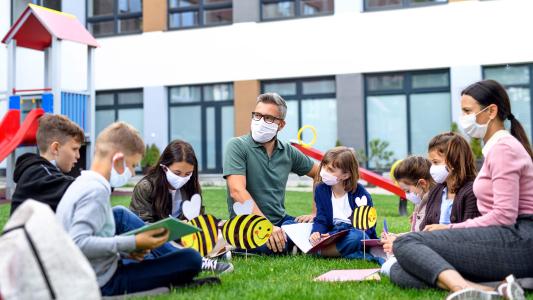An inhaled coronavirus drug has shown promise at preventing mild cases of COVID-19 from becoming more severe, according to a small new clinical trial.
Given the dire need for effective coronavirus treatments, this news is welcome — but excitement about the drug should be tempered, given the small trial size and lack of peer-review of the data.
Synairgen’s Coronavirus Drug
When viruses infect cells, the cells respond by producing a protein called “interferon beta,” which then coordinates their antiviral response.
The novel coronavirus, SARS-CoV-2, has been shown to stifle the production of interferon beta, leading researchers to test injections of the protein as a treatment for COVID-19.
Patients given Synairgen’s coronavirus drug appeared twice as likely to recover.
U.K. biotech company Synairgen had already developed an inhalable formulation of interferon beta to treat respiratory illnesses, prior to the onset of the pandemic.
In March, the company launched a placebo-controlled, double-blind trial to test whether the drug, SNG001, could help COVID-19 patients. On July 20, it shared a press release detailing the results of that trial.
Inhalable Interferon Beta
For the trial, 101 hospitalized COVID-19 patients in the U.K. each received a dose of either Synairgen’s coronavirus drug or a placebo.
During the 16-day trial period, SNG001 decreased patients’ chances of becoming severely ill (for example, dying or requiring mechanical ventilation) by 79%, when compared to patients who received a placebo, according to Synairgen.
Patients who received the company’s coronavirus drug also appeared to be twice as likely as those in the control group to recover from the illness, Synairgen reported (it defined “recovery” as having no signs of infection or no limitation on everyday activities).
Those in the SNG001 group also reportedly experienced a significant reduction in breathlessness, a primary symptom of severe COVID-19 cases.
“The results confirm our belief that interferon beta, a widely known drug that, by injection, has been approved for use in a number of other indications, has huge potential as an inhaled drug to be able to restore the lung’s immune response, enhancing protection, accelerating recovery and countering the impact of SARS-CoV-2 virus,” Tom Wilkinson, the trial’s chief investigator, said in a press release.
Cautious Optimism
Though the results shared by Synairgen are encouraging, it’s still far too soon to say whether the company’s inhaled coronavirus drug is destined to live up to its potential.
As mentioned, the trial was small, and as it stands, Synairgen primarily findings — decreased likelihood of increased severity and better chances of recovery — just barely made the cutoff for statistical significance. Larger studies will be necessary to confirm them.
Synairgen also has yet to release the full data on the study, and when it does, that data will then need to hold up under peer review before it can be considered reliable.
We’d love to hear from you! If you have a comment about this article or if you have a tip for a future Freethink story, please email us at [email protected].






